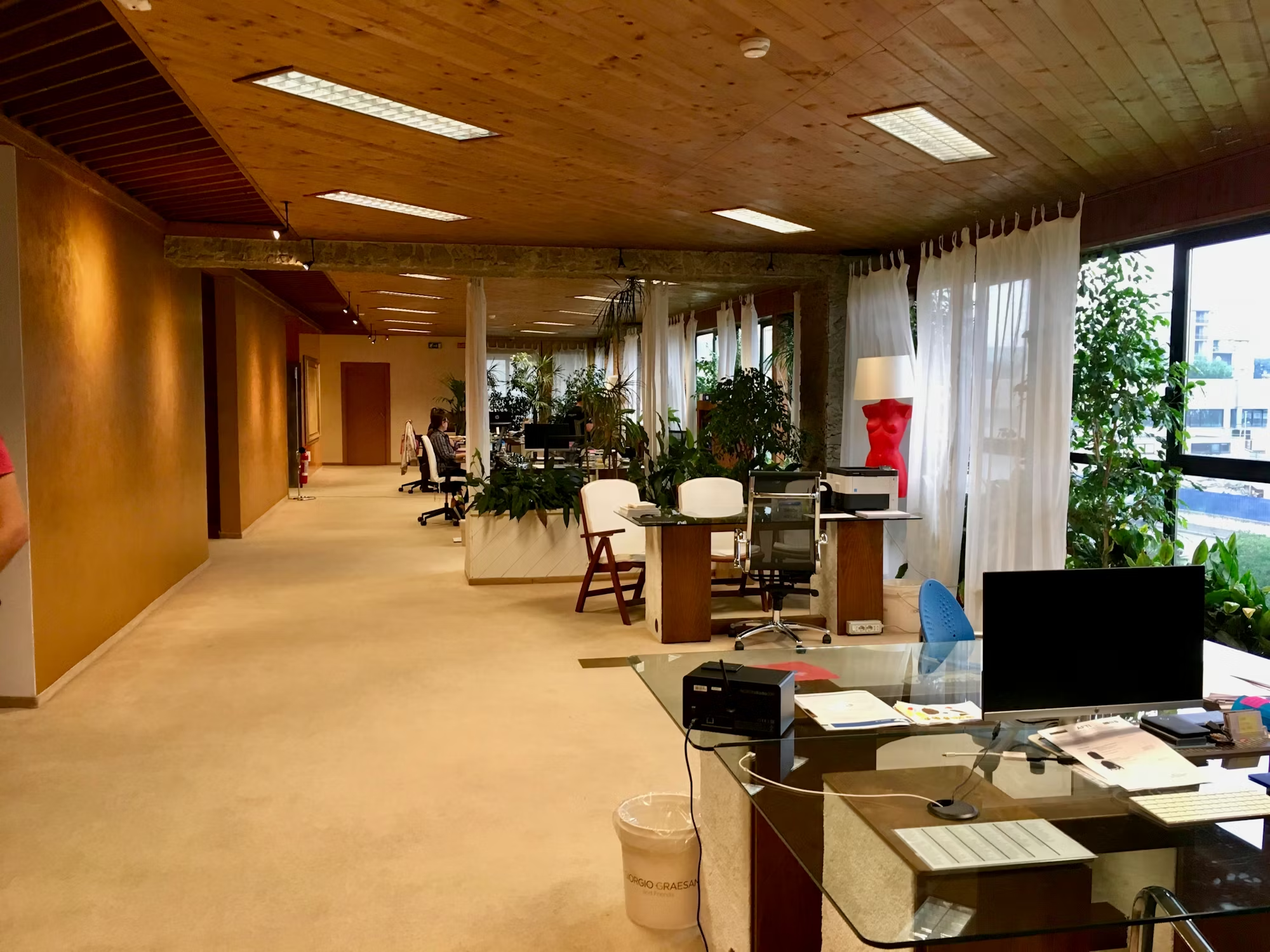Manager: Thank you for coming to today’s meeting, everyone. I’d like to give you some information about moving to our new office building so that you know what the plans are. So first, let me explain why we’re moving. Even though we’ve taken on quite a few new employees over the last year, we still have plenty of space here, but the problem is where we are. 1But we’ve now found the perfect place in the city center.
Originally, we chose this building in the suburbs because the rent was much cheaper, but our clients aren’t always keen on coming out here. I visited the new office last week, and I’m pretty sure that you’ll find the greatest advantage is 2the huge windows. I’m not sure we’ll need desk lamps at all. Of course, we’ll have everything checked out to make sure we can control the temperature of each office, and we may have to put some room dividers in some offices so that you’re not disturbed by your colleagues’ conversations. We’ve just set a date for the move.
The finance department wanted us to wait until after the end of the tax year, April, but we’ve decided to move earlier. 3As soon as the sales conference is over in January, we’ll move. That’ll give us plenty of time to organize everything before you start taking your annual holidays. We’ve already put quite a bit of information about the move on the company website, like 4restaurants and cafes around the new office, but we’re still checking bus routes and things like that, so transport information will be up by next Monday. Another thing still to get confirmed is which car park we can use and how many people can use it.
Okay. Let’s move on to some practical things you have to do now. Don’t worry yet about taking home your photos and things like that. That can be sorted out much nearer the time, along with getting rid of any unwanted paperwork. 5We need to find out how many new desks and chairs to order, so could you make a list of any of the ones you use that are scratched or broken?
Just one thing. All documents containing non confidential information can go into the general packing boxes. But when it comes to documents containing confidential information, 6you’ll need to put these in special bags. You’ll be given gray plastic ones for this. So one thing to do now is go through your filing cabinets and identify which folders are confidential.
Manager: Now to help you prepare for the move, I’d like to talk about lifting heavy things. You shouldn’t really have to do this because a removal company will be used. But you might want to move a box out of your way or something. It’s surprising how often people 8don’t remember to use the handles on the boxes, although they all have them. You’ve all had the leaflet explaining that you should keep your back straight and your head up when lifting.
And it also tells you to stand with your feet firmly on the ground and a little bit apart, so I think that’s clear. But the leaflet emphasizes the importance of 7not twisting to the left or right once you’ve picked something up, and if you’re like me, that’s easy to forget. I’d also like to talk about papers. If they’ve been stored for a long time, they can get mold on them, a sort of fungus. And as soon as you start moving them, the fungus gets disturbed.
As you know, you can’t open the windows in this building, but I suggest you 9use the gloves that we’ll provide. We’ll also get some face masks, but we’ve been advised that these shouldn’t be necessary. What you should do is 10drink one or two litres of water a day. That’s essential. Often, the best time to do this sort of work is after your afternoon break so that you can leave the building soon afterwards.
Now are there any questions?

![[Forecast Q2-2025] - Biology lecture](https://static.helik.app/reading/8fd3d7d2-ccf9-47a3-8920-2e7a3b0d6607)
![[Forecast Q2-2025] - Living in the City](https://static.helik.app/reading/1a60bcf3-f3a7-4e9b-97a2-94d156a0de3b)
![[Forecast Q2-2025] - Student Union](https://static.helik.app/reading/fb443123-8c1d-447e-8c79-5a01650f4754)
![[Forecast Q2-2025] - Fruit-picking Job in an Orchard](https://static.helik.app/reading/e1968346-6c55-44ae-b8d3-f6a4fb7207b9)
![[Forecast Q2-2025] - University Crime Prevention](https://static.helik.app/reading/bdda593e-16d6-4c72-8a12-b116e917b27c)
![[Forecast Q2-2025] - Business Course](https://static.helik.app/reading/3308e282-99a6-4bcb-9d22-0b488701d968)
![[C20T1] - Choosing a restaurant](https://static.helik.app/reading/e9b21123-c43c-42fb-88b7-5d0be3a37e03)
![[Helik Collect] - Car Club Scheme](https://static.helik.app/reading/6a749ba0-4cde-47fe-8260-f65b0599c3bf)